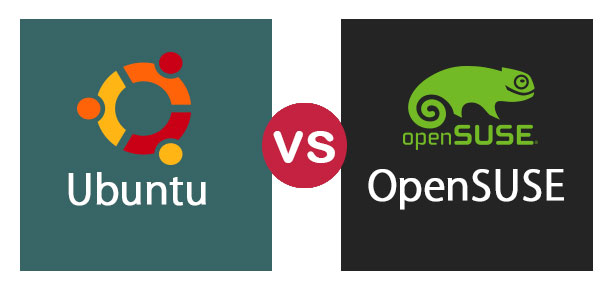Updated May 11, 2023
Difference Between Ubuntu vs OpenSUSE
What are Ubuntu and OpenSUSE? They both are the operating system. An operating system is a software package that manages the hardware and software instructions and controls the computer.
Ubuntu
Ubuntu is open-source software that Canonical developed in October 2004. It is a very reliable operating system. Its latest release is Ubuntu 18.10. It comes with three official editions: Ubuntu Desktop – for a personal computer, Ubuntu Server – for making the servers, and Ubuntu Core for the IoT and Robots.
Some key features of Ubuntu are given below:
- It’s an open-source operating system.
- Ubuntu has a better User Interface.
- Security point of view, Ubuntu is very safe because of is less valuable.
- The font family in Ubuntu is very much better in comparison to Windows.
- It has a centralized software Repository from which we can download all required software.
- Unix Environment is the best for the programmer.
- Command Line interface – It has both a command-line interface and a GUI interface.
- Cost- It’s open-source that is free of cost.
- You can run Ubuntu in a pen drive without installing it for testing purposes.
OpenSUSE
OpenSUSE is an open-source operating system developed by the openSUSE project line, and it belongs to the UNIX-like OS family. Its initial release happened in October 2005. Its update method is a rolling release.
Some key features of OpenSUSE are given below:
- It is an open-source operating system.
- Its kernel type is Monolithic.
- It belongs to GNU
- The standard packet manager is ZYpp, The front-end packet manager is YaST, and the low-level packet manager is RPM.
- It has an update method of Rolling release.
Head To Head Comparison Between Ubuntu vs OpenSUSE (Infographics)
Below are the top 21 differences between Ubuntu vs OpenSUSE:
Key Differences Between Ubuntu vs OpenSUSE
Both are popular choices in the market; let us discuss some of the major differences:
- Ubuntu packet manager is dpkg, while in OpenSUSE, the packet manager is RPM.
- Ubuntu’s current Linux kernel is 15, but OpenSUSE Linux Kernel is 4.12.14.
- Ubuntu belongs to the Linux family, while OpenSUSE belongs to SUSE-Linux
- Ubuntu’s default user Interface is GNOME, while the OpenSUSE user interface is GNOME3 or KDE Plasma 5.
Ubuntu vs OpenSUSE Comparison Table
Below is the topmost comparison between Ubuntu vs OpenSUSE
| Basis of Comparison |
Ubuntu |
OpenSUSE |
| Developer | Canonical | openSUSE Project |
| OS Family | Linux | SUSE Linux |
| Source Model | Open Source | Open Source |
| Release | 20 October 2004 | October 2005 |
| Kernel Type | Monolithic | Monolithic |
| Userland | GNU | GNU |
| Default User Interface | GNOME, Ubuntu Unity | GNOME 3 or KDE Plasama 5 |
| Cost | Free, Open Source | Open Source |
| Viruses | Viruses can’t survive in this | Can’t attack |
| Packet Manager | dpkg | RPM |
| Version | Ubuntu 18.04 | 15 |
| Current Linux Kernel | 4.15 | 4.12.14 |
| Updates | Updates are very easy | Rolling release |
| Programming | The programming part is very easy | It’s easy in this |
| Entertainment | It is not built for that | I can watch in this |
| MS Office Work | Comfortable with MS Office | It supports this |
| Gaming | You can’t play games on this. | Not built for games |
| Adobe and Photoshop Support | Not much support | Same like Ubuntu |
| Performance(RAM and Core) | Better | Good |
| Security | No need for Antivirus and Firewall. | No need. |
| Learning | It is not easy to learn | It’s easy in comparison to Ubuntu |
Conclusion
This is all about the comparison between Ubuntu vs OpenSUSE. Regarding popularity, Ubuntu is much more popular than OpenSUSE among Developers and testers because of its versatility.
Recommended Articles
This has been a guide to the top differences between Ubuntu vs OpenSUSE. Here we discuss Ubuntu vs OpenSUSE key differences with infographics and a comparison table. You may also have a look at the following articles to learn more –




